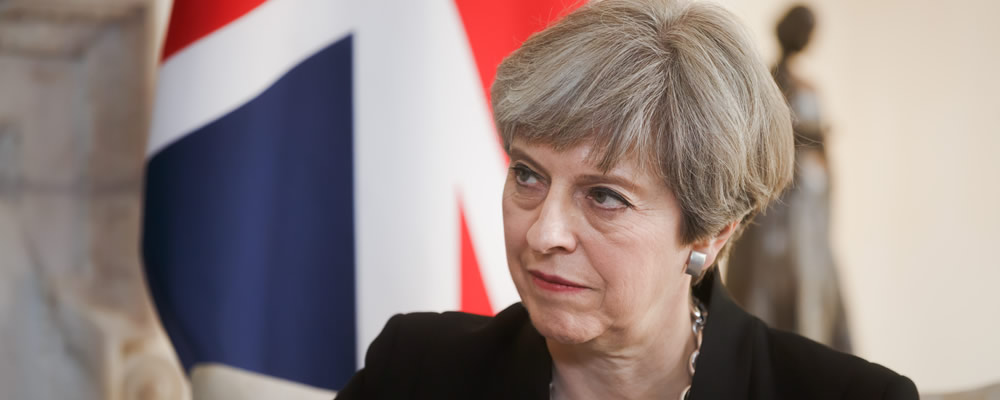Euro Pound (EUR/GBP) Exchange Rate Slides as Theresa May Resigns as PM
The Euro Pound Sterling (EUR/GBP) exchange rate slumped by around 0.4%.
The pairing is currently trading at an inter-bank rate of £0.8924.
Sterling edged up against the Euro as Boris Johnson became the next leader of the Conservative Party.
In her outgoing speech, Prime Minister Theresa May stated that being Prime Minister ‘was the greatest honour’.
Following this speech, May gave her resignation to the Queen.
However, Chancellor Philip Hammond announced his resignation as expected.
This was shortly followed by the resignations of Justice Secretary David Guake and International Development Secretary Rory Stewart.
Added to this, Minister for the Cabinet Office, David Lidington resigned from his post.
Despite this, the pairing continued to slide as Sterling rose on the hope Johnson would end the Brexit uncertainty.
Barnier: European Union is Preparing for a No-Deal
Earlier, the European Union’s Chief Brexit Negotiator, Michel Barnier said the EU was preparing for a no-deal and added:
‘It’s a very important moment for Brexit.
‘We look forward to hearing what the new Prime Minister Boris Johnson wants, what are the choices of the UK.
‘Is it an orderly Brexit? This is the choice, the preference of the EU and we have worked for an orderly Brexit all along the last three years.
‘Is it a no-deal Brexit? A no-deal Brexit will never be, never, the choice of the EU. But we are prepared.’
Sterling rose despite the increased risk of a no-deal Brexit.
Euro (EUR) Slides as Manufacturing Slowdown Casts Dark Cloud Over the Bloc
Meanwhile, this morning data revealed that a manufacturing slowdown continued to cast a dark cloud over the Eurozone.
The bloc’s flash PMI composite showed that growth slowed from 52.2 in June to 51.5 in July.
This was the weakest monthly expansion for three months, and over the last six years there have only been four months that have seen weaker readings.
However, the data revealed the largest widening divergence between the services and manufacturing sectors since April 2009.
Commenting on the flash data, Chief Business Economist at IHS Markit, Chris Williamson stated:
‘The more domestically-focused service sector remained the main driver of expansion, though even here the rate of growth has slowed, likely in part due to signs of weaker labour market trends. Hiring was close to a three-year low in July.
‘With growth slowing, job creation fading and price pressures having fallen markedly compared to earlier in the year, the survey will give added impetus to calls for more aggressive stimulus from the ECB.’
Could Germany be Entering a ‘Mild Technical Recession’?
Earlier data showed that the German flash manufacturing PMI slumped to a seven-year low of 43.1 from June’s reading of 45.
Added to this, the German PMI composite fell to a six-year low of 51.4 from 52.6.
Disappointing job creation left the single currency under pressure as it slowed to its weakest level since April 2015.
Further weighing on the Euro, the manufacturing sector suffered its steepest fall in jobs in seven years.
Commenting on the data, Phil Smith, Principle Economist at IHS Markit noted:
‘The health of German manufacturing went from bad to worse in July, according to the flash PMI data, raising the risk of the Euro area’s largest member state entering a mild technical recession.
‘The performance from Germany’s goods producers in July is the worst recorded by the survey in seven years, with the renewed weakness mainly stemming from an accelerated drop in export orders – the most marked seen in over a decade.’
Euro Pound Outlook: Will a Dovish ECB Weigh on EUR?
Looking ahead to Thursday, it is likely the Euro (EUR) will slide against the Pound (GBP) following the release of the German IFO expectations, business climate and current expectations surveys.
If the data shows that pessimism in the bloc’s largest economy is continuing to increase, it could weigh on the single currency.
Meanwhile, the European Central Bank’s (ECB) meeting later in the day is likely to keep the Euro under pressure.
While the ECB are expected to leave rates unchanged, if the bank signals it is planning to cut interest rates in the near future, the Euro Pound (EUR/GBP) exchange rate could slump.
